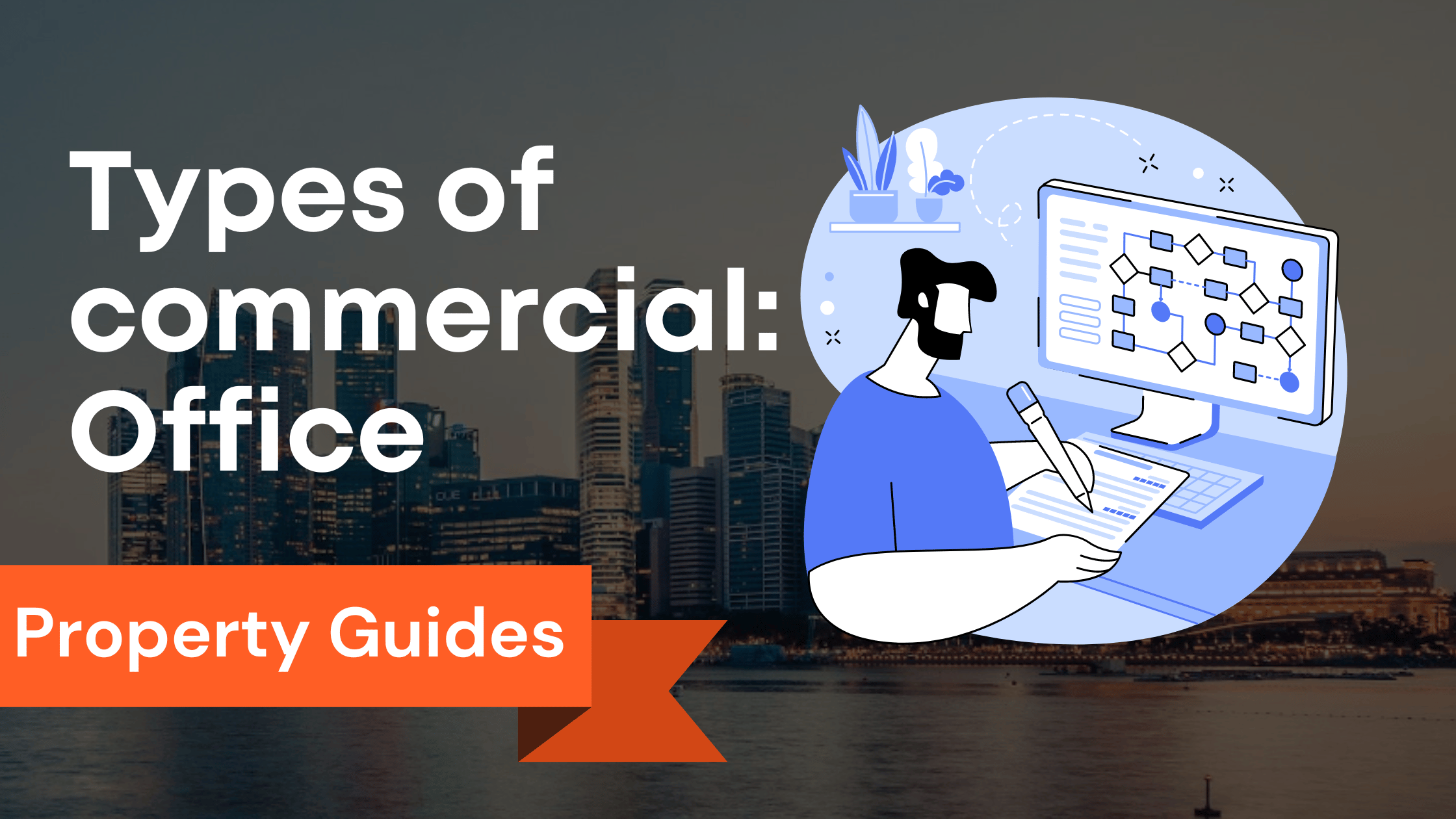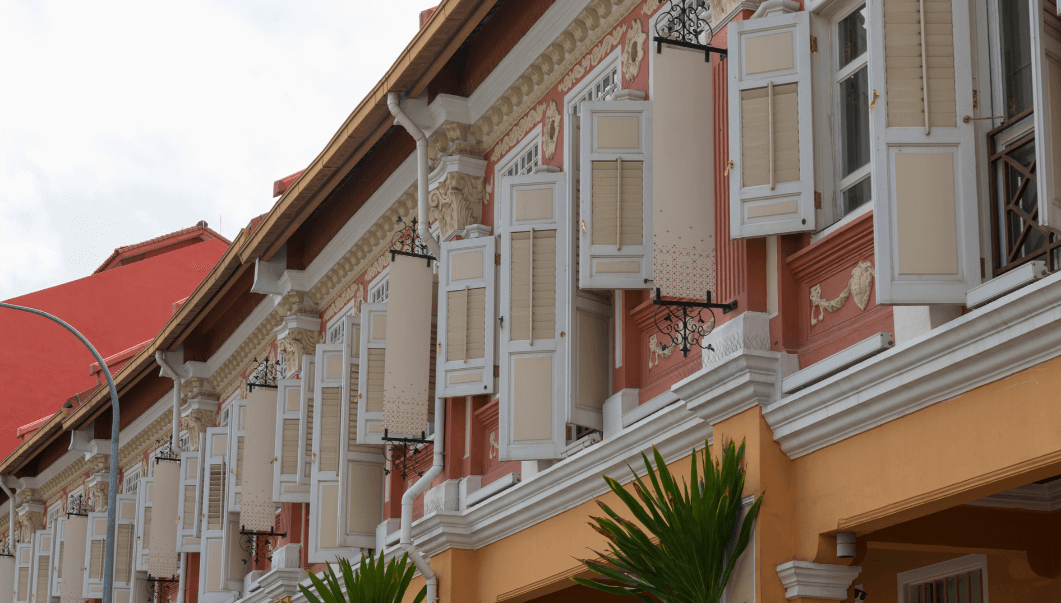
Welcome to a captivating voyage into the world of Singapore’s prestigious types of landed townhouse.
This article unravels the secrets and allure behind these exclusive residential treasures, offering a glimpse into a lifestyle defined by space, elegance, and individuality.
Key Takeaways
- Landed Property Definition: Landed properties in Singapore refer to residential properties with individual land areas, offering homeowners customization and space.
- Property Types: Singapore offers various types of landed properties: terrace houses, detached houses, semi-detached houses, and good class bungalows (GCBs).
- Property Terms: Familiarize with key property terms such as plot size, land area, plot width, cluster houses, and corner terrace houses to understand property characteristics.
- Terrace Houses: Terrace houses share common walls and come with multiple levels, suitable for families seeking cozy yet spacious homes.
- Detached Houses: Detached houses offer privacy, space, and tranquility, with larger land areas for customization.
- Semi-Detached Houses: Semi-detached homes offer space and privacy, sharing a common wall with a neighbor, often with gardens and balconies.
- Good Class Bungalows (GCBs): GCBs are luxurious, exclusive properties with large land areas, prestigious locations, and unique amenities.
- Cluster Houses: Cluster houses provide spacious living with communal facilities, fostering a close-knit community.
- Shophouses Reimagined: Shophouses blend commerce and residence, with commercial spaces on the ground floor and homes above.
- Housing Diversity: Understand housing options, including HDB flats, private condominiums, and landed homes, each catering to different needs.
Understanding Landed Properties in Singapore: A Comprehensive Guide
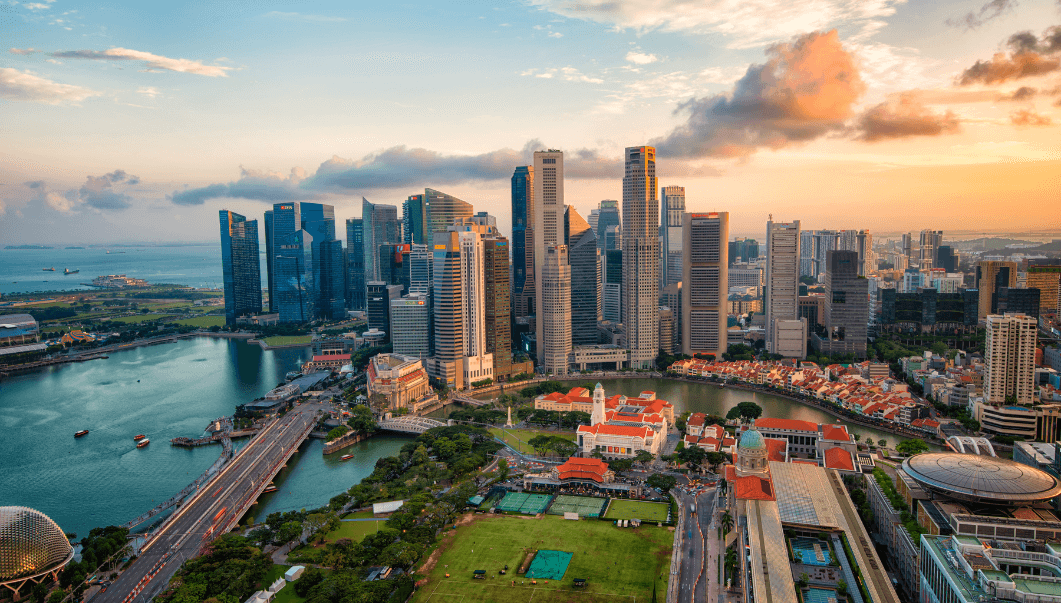
What are landed properties?
Landed properties refer to residential properties that come with a piece of land.
Unlike condominiums or apartments, landed properties have their land area, allowing homeowners to customize and utilize the space according to their needs.
What are the different types of landed properties in Singapore?
Singapore offers a range of landed property types to suit different preferences and lifestyles.
These include terrace houses, detached houses, semi-detached houses, and good-class bungalows.
What are the property terms associated with landed properties?
Regarding landed properties, several key property terms are commonly used.
These terms include plot size, land area, plot width, cluster houses, corner terrace houses, shared walls, and more.
Familiarizing yourself with these terms will help you better understand the characteristics of each property type.
Exploring Terrace Houses: A Staple of Singapore’s Property Landscape
What is a terrace house?
A terrace house, a row house, or a cluster house is a type of landed property connected to neighboring houses.
They are characterized by their unique architectural design, with a continuous row of houses sharing common walls.
What are the features of a terrace house?
Terrace houses in Singapore typically have multiple levels, with the living area on the ground floor and bedrooms on the upper floors.
Some terrace houses have additional features like swimming pools, gardens, and car parks.
How much land do terrace houses usually have?
The land area of terrace houses can vary, but they are generally smaller than other landed property types.
However, they still offer ample living space, making them popular for families looking for a cozy yet spacious home.
Unveiling the Charm of Detached Houses in Urban Singapore
What is a detached house?
A detached house, also known as a single-detached house or a bungalow, is a standalone property with no shared walls.
It offers homeowners the ultimate privacy and exclusivity.
What are the advantages of living in a detached house?
Living in a detached house provides homeowners with plenty of space inside and outside.
Detached houses often come with a larger plot of land, allowing for more flexibility in design and landscaping.
It also offers a sense of serenity and tranquility away from the hustle and bustle of the city.
How do detached houses differ from other types of landed properties?
Unlike terrace houses or semi-detached houses, detached houses do not share walls with neighboring houses.
This means that homeowners can design and renovate their homes without restrictions imposed by common walls.
The Allure of Semi-Detached Homes: A Blend of Space and Privacy
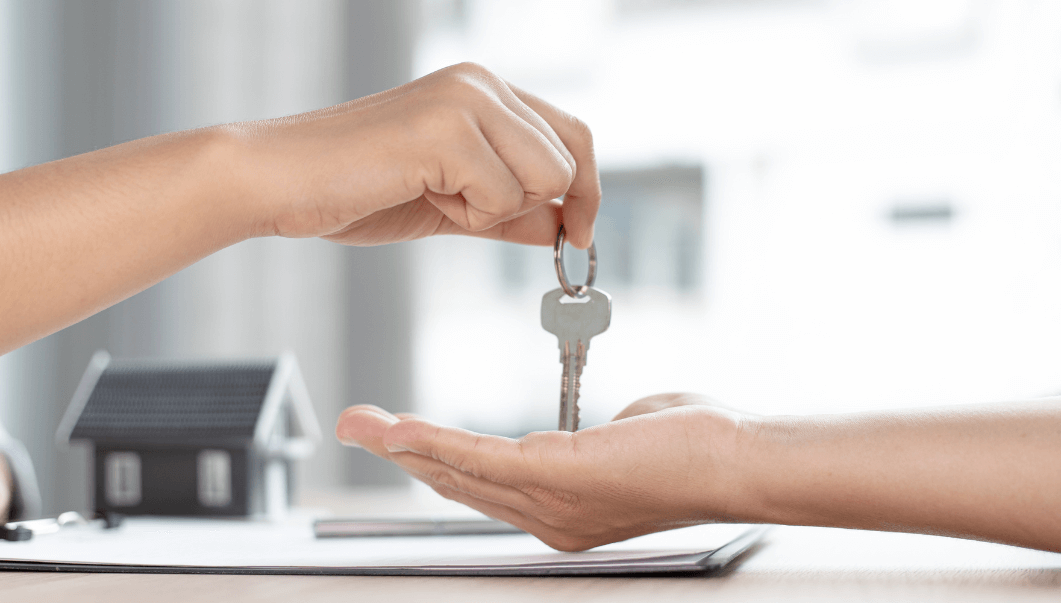
What is a semi-detached house?
A semi-detached house, also known as a twin house, is a type of landed property that shares a common wall with a neighboring house.
It offers homeowners the advantage of having more space compared to terrace houses while still maintaining a sense of privacy.
What are the key features of a semi-detached home?
Semi-detached houses in Singapore are typically designed with multiple levels, similar to terrace houses.
They offer spacious living areas and bedrooms, often with additional features such as gardens, balconies, or private car parks.
Are semi-detached houses more expensive than terrace houses?
Due to their larger land area and increased privacy, semi-detached houses are generally priced higher than terrace houses.
However, the price can vary depending on location, condition, and amenities.
Good Class Bungalows: Luxurious Living in Exclusive Enclaves
What are good class bungalows (GCBs)?
Good-class bungalows, commonly called GCBs, epitomize luxury and exclusivity in Singapore’s property market.
They are highly sought after by affluent individuals and offer the utmost privacy and space.
How do GCBs differ from other types of landed properties?
GCBs are known for their large land areas, often exceeding 1,400 square meters.
They are usually in prestigious neighborhoods and feature luxurious amenities like private swimming pools, spacious gardens, and state-of-the-art security systems.
What are the restrictions and requirements for owning a GCB?
Owning a GCB in Singapore comes with certain restrictions and requirements.
The Urban Redevelopment Authority (URA) has strict regulations to ensure these properties’ preservation and exclusivity.
To be eligible to purchase a GCB, an individual must meet specific criteria set by the URA.
Cluster Houses: Modern Living with a Sense of Community
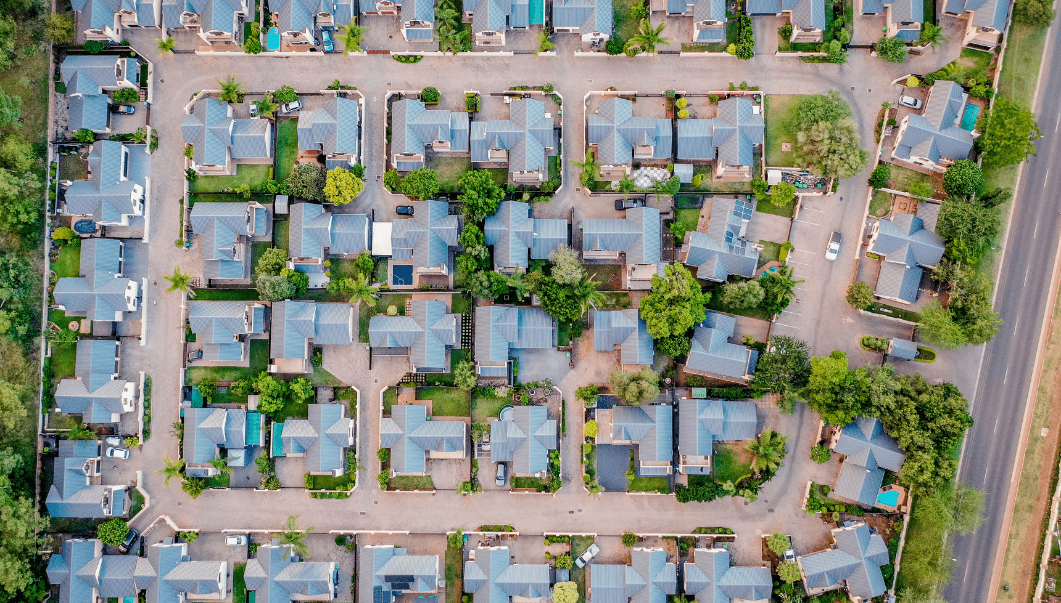
What are cluster houses?
A cluster house is a type of landed property consisting of a small development with limited units.
These houses are typically arranged in a cluster or a row, with each team having a car park and private garden.
Cluster houses offer the benefits of landed living while providing communal facilities, creating a close-knit community.
Features and amenities of cluster houses
Cluster houses are designed to provide residents with a spacious living environment.
These houses often feature multiple stories, allowing for ample family living space.
In addition, residents can enjoy facilities such as swimming pools, gyms, and playgrounds, which are commonly shared among the cluster housing development.
Advantages of living in a cluster house
Living in a cluster house offers several advantages.
Firstly, the communal facilities foster a sense of community and provide opportunities for social interaction among neighbors.
Secondly, cluster houses often have a strata title, meaning the residents jointly own and manage the communal areas and facilities.
This ensures that the collaborative spaces are well-maintained and properly managed.
Shophouses Reimagined: A Unique Blend of Commerce and Residence
What are shophouses?
Shophouses are historic buildings traditionally used on the ground floor for commercial purposes, with residences on the upper floors.
These iconic buildings are characterized by their distinct architectural style, ornate facades, and shophouse shutters.
How are shophouses used as residences?
In recent years, shophouses have been reimagined as unique residential properties.
The ground floor is often converted into commercial spaces, such as cafes, restaurants, or boutique shops, while the upper floors are transformed into spacious homes.
Living in a shophouse offers a one-of-a-kind experience, combining the charm of heritage buildings with modern comforts.
Pros and cons of living in a shophouse
While living in a shophouse can be a unique and exciting experience, it is essential to consider the pros and cons.
On the positive side, shophouses offer spacious living areas and a sense of history and character.
However, it is worth noting that shophouses may have limited privacy due to their shared walls and proximity to neighboring units.
Additionally, maintenance and renovation works may be subject to strict regulations to preserve the heritage value of the building.
Types of Landed Residences: Diverse Choices for Singaporeans
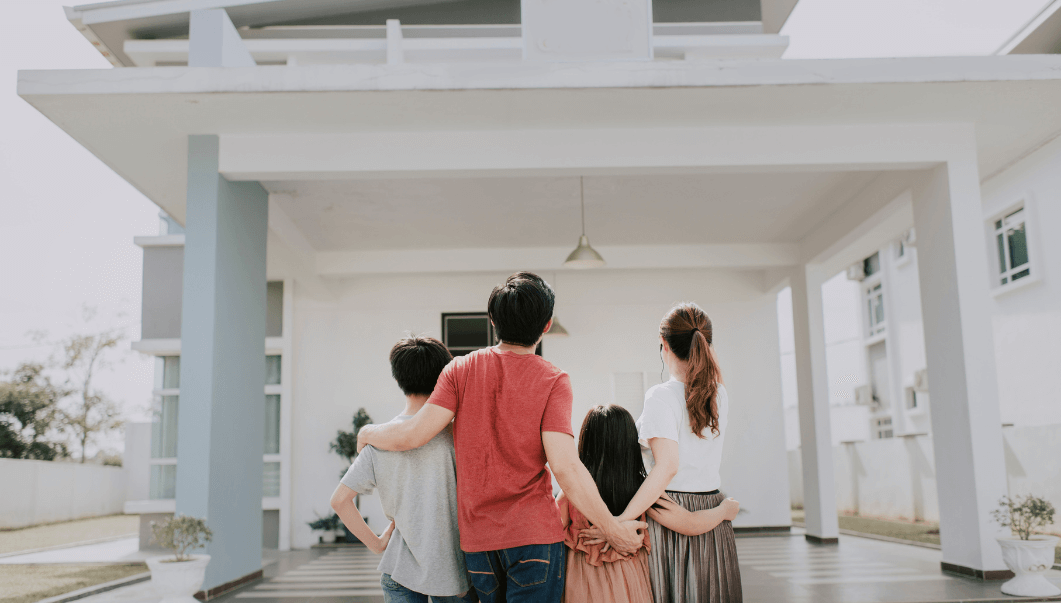
What are the different types of landed properties?
Landed properties in Singapore come in various forms, including terrace houses, semi-detached homes, and bungalows.
These properties are characterized by their land plots and offer residents the luxury of space and privacy.
Understanding the concept of strata titles
Strata titles are commonly associated with cluster houses and specific landed properties.
They refer to the division of ownership into individual units or lots, along with the shared ownership of common areas.
This allows residents to manage and maintain the communal facilities and spaces collectively.
Factors to consider when choosing a landed residence
When choosing a landed residence, there are several factors to consider.
These include the location, accessibility, nearby amenities, and future development plans in the area.
Additionally, it is essential to review the tenure of the property, as some properties may have leasehold tenure, which means they are on a lease for a certain number of years.
Corner Terrace Houses: Maximizing Space and Comfort
Features and layout of corner terrace houses
Corner terrace houses are a popular type of landed property in Singapore.
As the name suggests, these houses are at the corner of a row of terrace houses.
This allows for more privacy and natural light, as corner terrace houses have more windows and open spaces.
The layout of corner terrace houses often includes spacious living areas, multiple bedrooms, and bathrooms, providing residents with ample space and comfort.
Benefits of owning a corner terrace house
One of the main benefits of owning a corner terrace house is the additional space and privacy it offers.
The corner location allows for a larger land area and more outdoor space, which can be used for gardening, outdoor activities, or even constructing additional structures, subject to relevant regulations.
Additionally, corner terrace houses often command a higher value than intermediate terrace houses, making them a sound investment choice.
Tips for maintaining a corner terrace house
Maintaining a corner terrace house requires regular upkeep and proper maintenance.
It is essential to keep the exterior facade clean and well-maintained and ensure that the surrounding landscaping is kept tidy.
Routine inspections and repairs should be conducted to address any issues promptly and prevent further damage.
Additionally, it is advisable to engage professional services for major maintenance works or renovations to ensure the best possible outcome.
Urban Redevelopment Authority (URA) Guidelines for Landed Homes

Overview of URA guidelines for landed properties
Singapore’s Urban Redevelopment Authority (URA) has implemented guidelines for landed properties to promote sustainable development and ensure a harmonious living environment.
These guidelines cover various aspects, including building height, setback requirements, and the preservation of heritage buildings.
Understanding the minimum land area requirement
One of the critical aspects of URA guidelines is the minimum land area requirement for different types of landed properties.
For example, a detached house typically requires a minimum plot size of 400 square meters.
These requirements aim to balance density and privacy in residential areas.
Compliance with URA guidelines for property buyers
Before purchasing a landed property, buyers must be familiar with and comply with the URA guidelines.
This ensures that the property meets the requirements and avoids potential future conflicts or issues.
Engaging a professional real estate agent or lawyer can provide valuable guidance and assistance throughout the buying process.
Plot Sizes and Land Area: Key Considerations for Landed Properties
What are the key considerations for plot sizes and land area when it comes to landed properties?
When purchasing a landed property, the size of the land plot is a crucial consideration.
The plot size determines the space available for construction and future expansion.
Larger land sizes generally command higher prices due to the potential for more extensive development.
How does the land area affect the value and price of a landed property?
The land area directly influences the value and price of a landed property.
In Singapore, land scarcity has led to high demand for larger land sizes, resulting in greater competition and higher prices.
Buyers looking for more affordable options may consider properties with smaller land sizes.
Are there any restrictions on the plot sizes for landed properties in Singapore?
The Singapore Land Authority (SLA) imposes regulations on the minimum plot size for landed properties.
Different landed properties have specific requirements, such as a minimum plot size of 400 sqm for standalone terrace houses.
Buyers need to familiarize themselves with these regulations before making a purchase.
Exploring Housing Diversity: From HDB Flats to Landed Homes

What is the difference between HDB flats and landed homes?
HDB flats are public housing developed by the Housing Development Board for most Singaporeans.
These flats are typically non-landed, where residents own their flats but not the land they are built on.
Landed homes, on the other hand, refer to private properties where homeowners own both the house and the land it sits on.
Can HDB flat owners upgrade to a landed property?
HDB flat owners can upgrade to landed properties if they meet the eligibility criteria.
However, it is essential to note that upgrading to a landed property requires a significant financial commitment due to the higher property prices.
What are the housing options available in Singapore other than landed properties and HDB flats?
In addition to landed properties and HDB flats, Singapore offers a variety of other housing options.
These include private condominiums, cluster housing, and apartments.
Each type of housing provides different amenities, price ranges, and ownership structures to cater to the diverse needs of homeowners.
Private and Landed Properties: Navigating the Residential Landscape
What is the difference between private properties and landed properties?
Private properties encompass many residential options, including both landed and non-landed properties.
Landed properties refer to houses built on individual land, whereas non-landed properties include apartments, condominiums, and townhouses.
Are there any advantages of owning a landed property over a private condo?
Owning a landed property offers several advantages over a private condominium.
Landed properties provide homeowners with more privacy, space, and freedom for customization.
Additionally, landed properties often come with larger land sizes, allowing for the construction of additional amenities such as gardens or swimming pools.
What are the restrictions or regulations for owning a landed property in Singapore?
There are several restrictions and regulations for owning a landed property in Singapore.
These include minimum land plot sizes, building heights and setbacks guidelines, and conditions on the property’s facade modifications.
Homeowners are advised to consult with property developers and adhere to the rules set by the relevant authorities.
Landed Townhouses: Combining Comfort and Lifestyle
What is a landed townhouse and how is it different from other types of landed properties?
A landed townhouse is a type of landed property that offers a combination of the privacy and exclusivity of a lighted home, along with the convenience and amenities of a condominium development.
Landed townhouses are typically strata-titled, meaning that homeowners own the individual units within the story but share common areas and facilities.
What are the amenities and facilities typically found in landed townhouse developments?
Landed townhouse developments often include various recreational facilities to enhance residents’ lifestyles.
These facilities may include swimming pools, fitness centers, playgrounds, and landscaped gardens.
These amenities create a sense of community and provide homeowners with additional conveniences.
Are there any advantages of living in a landed townhouse as compared to a traditional landed property?
Living in a landed townhouse offers several advantages over a traditional landed property.
A landed townhouse development’s shared facilities and amenities provide residents with a resort-like living experience.
Additionally, the maintenance and security of the common areas are typically taken care of by the management, reducing the homeowners’ responsibilities.
Singapore’s Landed Property Market: Trends and Insights
What are the current trends in the Singapore landed property market?
The Singapore landed property market has witnessed steady growth in recent years.
Demand for landed properties remains strong, with buyers particularly interested in well-located properties with excellent accessibility and amenities.
The market has also seen more property developers focusing on developing landed properties to cater to the demand.
How have the prices of landed properties in Singapore been changing over the years?
The prices of landed properties in Singapore have generally been upward, driven by land scarcity, location, and demand.
However, market conditions and external factors can result in fluctuations in prices.
Potential buyers should conduct thorough research and consult property news sources to stay informed about the current market trends.
What are some tips for those looking to invest in the Singapore landed property market?
Individuals interested in investing in the Singapore landed property market must consider factors such as location, land size, and potential for future development.
Engaging a trusted property agent and staying updated on market trends can provide valuable insights for making informed investment decisions.
Additionally, conducting due diligence and exploring financing options is recommended before finalizing any purchase.
Conclusion
In conclusion, Singapore offers a wide range of landed townhouse options, each with unique features and benefits.
From cluster houses that promote communal living to shophouses reimagined as residences, there is a type of landed townhouse to suit every individual’s preferences and lifestyle.
Potential buyers must understand the different property types, consider their needs and requirements, and adhere to relevant guidelines and regulations to make an informed decision about their future home.
Frequently Asked Questions
What are the different types of landed townhouses?
The different types of landed townhouses include semi-detached houses, terrace houses, and strata-titled landed properties.
How are semi-detached houses categorized?
Semi-detached houses are landed townhouse that shares a common wall with a neighboring house.
They are a popular choice for those who want the privacy of a landed home but at a more affordable price than detached houses.
What are terrace houses?
Terrace houses are landed townhouses arranged in rows and share a party wall with neighboring houses.
They typically have a minimum plot width of 8 meters and are often found in older residential neighborhoods.
What are the characteristics of a landed terrace house?
A landed terrace house is a two or more-story home in a row of at least three similar dwellings.
They usually have a plot of land and offer more space than apartments or condominiums.
What are strata-titled landed properties?
Strata-titled landed properties are similar to terrace houses but are governed by a strata title.
This means that the land is owned jointly by the owners of each unit, while the building is owned individually.
How are landed townhouses different from private apartments or condominiums?
Landed townhouses differ from private apartments or condominiums as they have their own individual land plot, unlike apartments or condominiums built on common land.
Can landed townhouses be considered public housing in Singapore?
No, landed townhouses are not considered public housing in Singapore.
They are typically private residential properties not subject to public accommodation regulations and affordability requirements.
Are there any affordable landed townhouses available?
It is advisable to consult with a property agent or research to find affordable landed townhouses that fit your budget.
Where can I find more information about types of landed townhouses in Singapore?
You can find more information about types of landed townhouses in Singapore from property websites such as PropertyGuru or by consulting with a property agent specializing in landed properties.
What are the property options for those who want to buy a landed townhouse in Singapore?
The property options for those who want to buy a landed townhouse in Singapore include brand-new developments from private developers, resale landed houses, and executive condominiums.
These options offer different choices regarding price range, location, and amenities.












